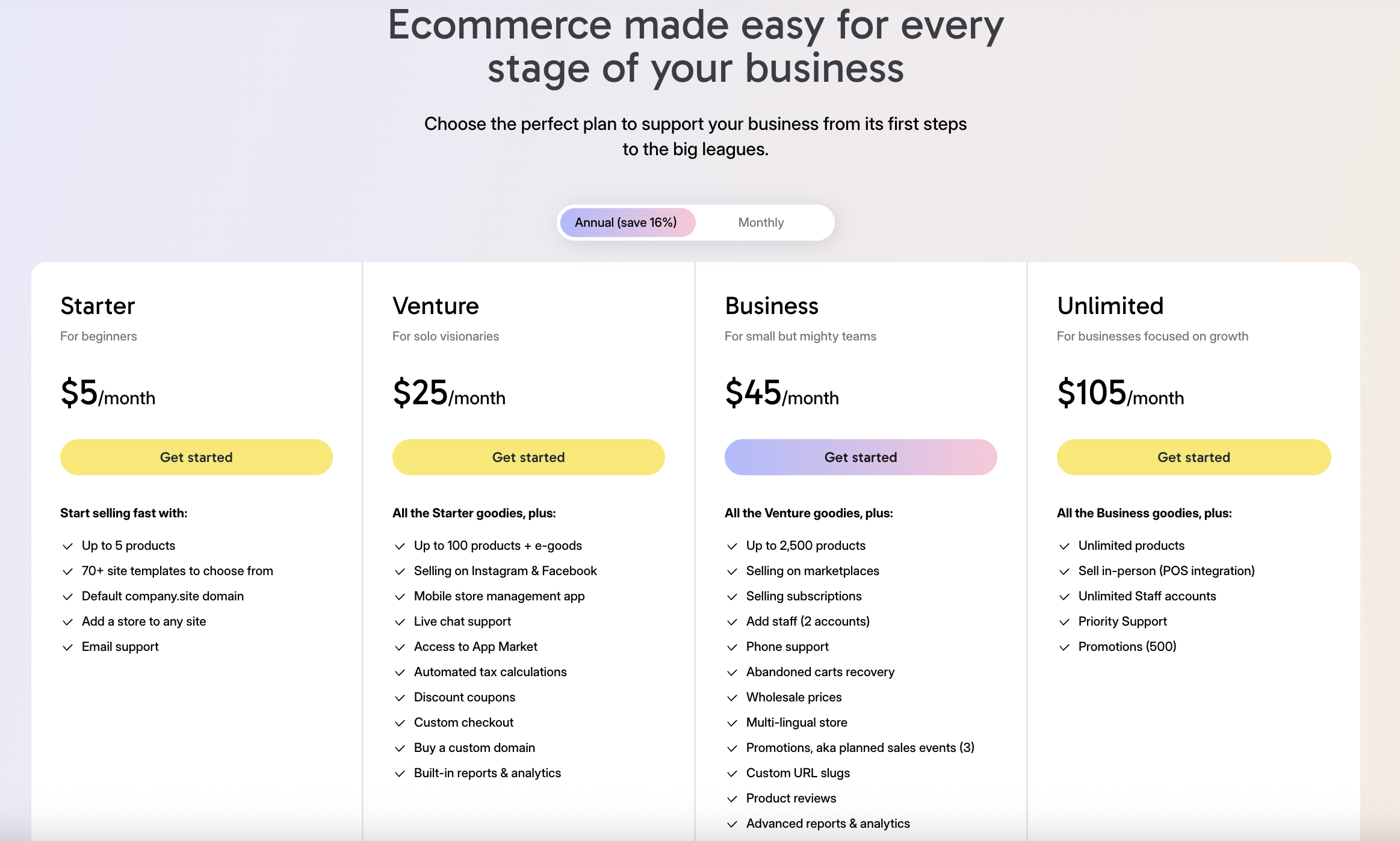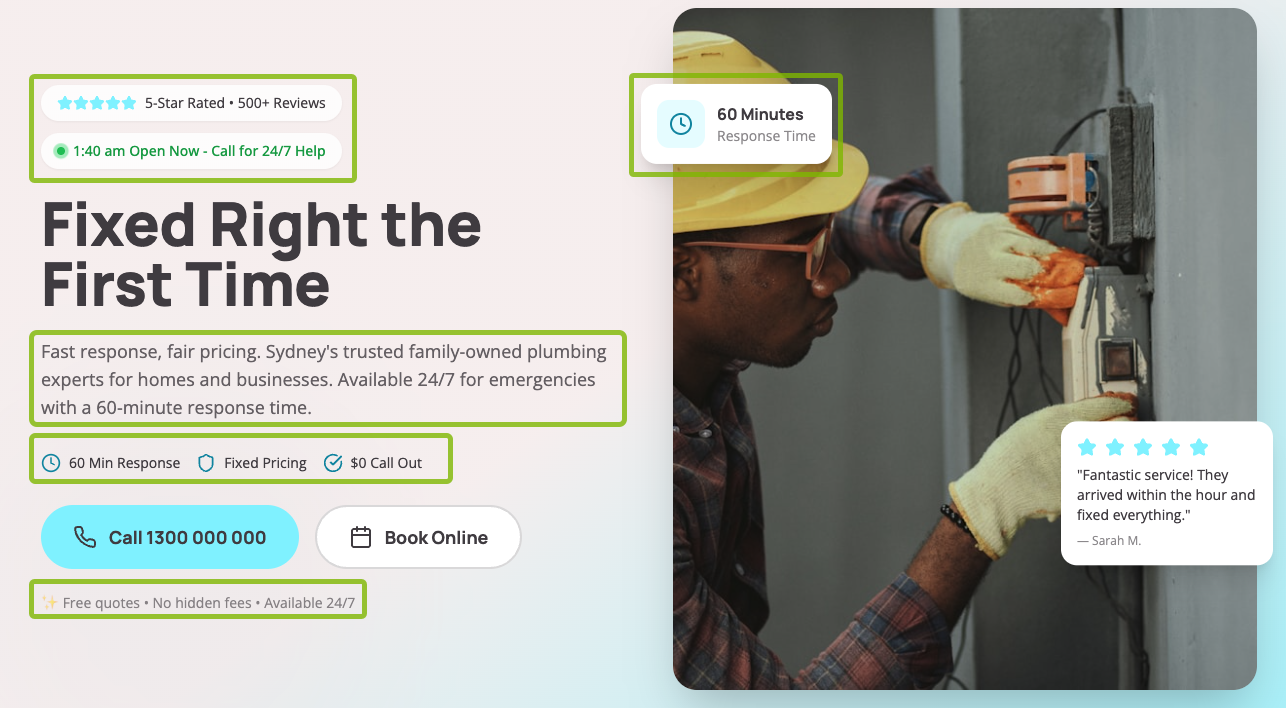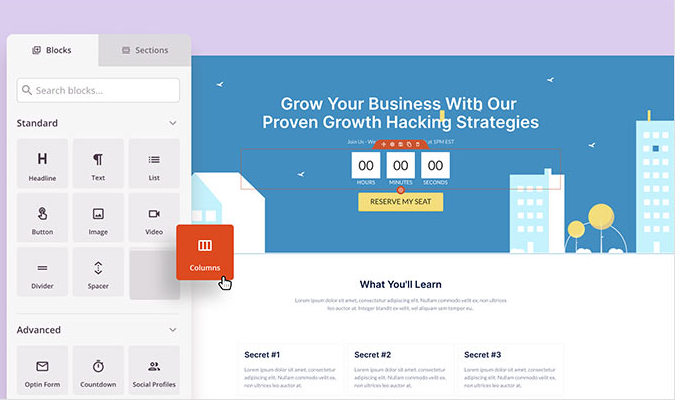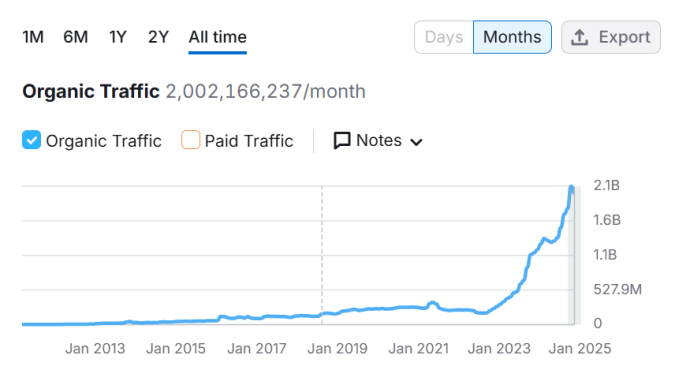Ecommerce platforms are the backbone of online stores—you won’t get very far selling online without one.
A solid ecommerce platform is essential for anyone selling online. Brick-and-mortar businesses can open up a new revenue stream, and new businesses can use a web store to start selling their products or services ASAP.
Today, there’s a multitude of online selling solutions. Some are website builders with built-in store tools; others are full-stack commerce engines that cover everything from storefronts to payments, shipping, analytics, and more.
If you’re starting from scratch or aren’t familiar with coding, an all-in-one ecommerce site builder is your best friend. It’s the fastest way to go from nothing to a full-fledged web store.
If you already have a site you love, or you have specific needs (like selling digital products or subscriptions), consider the excellent WordPress plugins that add just the functionality you need.
Even if you’re not 100% ready to start selling, you can still set things up, generate traffic, and build hype in preparation for launch.
After testing 20 different ecommerce platforms and comparing monthly fees, transaction fees, supported business models, and plan limitations, Bluehost is our top pick for most users.
It’s a simple and affordable way to start selling online with virtually any business model, and it’s packed with the features you need to succeed.
There are other great options, too, in case Bluehost isn’t the perfect fit for your needs.
Below, we’ve included additional companies to compare that are also excellent choices for your ecommerce platform.
The Top 11 Best Ecommerce Platforms in 2026
- Bluehost – Best for automatic WooCommerce store setup
- Shopify – Best all-in-one ecommerce platform
- Wix – Best ecommerce platform for beginners
- Squarespace – Best portfolio-based ecommerce builder
- BigCommerce – Best for multichannel sales
- Shift4Shop – Best ecommerce platform for developers
- Ecwid – Best low-cost shopping cart extension for existing sites
- WooCommerce – Best ecommerce plugin for WordPress
- Easy Digital Downloads – Best WordPress plugin for digital products
- Volusion – Best ecommerce platform for large product catalogs
- Magento – Best enterprise ecommerce platform
Read on for in-depth reviews of each platform on our list.
#1 – Bluehost — The Best for Automatic WooCommerce Store Setup
Bluehost
Best for Automatic WooCommerce Store Setup
Take the guesswork and learning curve off your plate with Bluehost's dedicated WooCommerce hosting. Get a customizable site builder, included plugins, and much more, as well as Bluehost's best-in-class hosting and support.
Bluehost is one of just three hosts recommended by the developers of WordPress. The company is well-versed in all things WordPress and building websites of all shapes and sizes—including online stores.
This is one of several reasons Bluehost is our top recommendation for ecommerce sites.
It makes setting up your store simple. At checkout, Bluehost’s guided store creator auto-installs WooCommerce along with essential extensions and plugins, so you’re ready to sell out of the box.

Bluehost offers a dedicated package for online stores—WooCommerce hosting. WooCommerce itself is a WordPress plugin that adds ecommerce functionality to your site; Bluehost supplies the secure, optimized hosting and installs the best-practice stack for you.
You can use any host for WooCommerce, but Bluehost’s WooCommerce plans streamline the process and remove the usual setup curve.
Both plans include a guided online store builder, email marketing tools, and 24/7 support.
Even better, Bluehost doesn’t skimp on store features. The Standard and Premium tiers support unlimited products and product variations, built-in payment processing options, product reviews, discount codes, manual order creation, and more.
The biggest perk for newcomers is the pre-installed plugin bundle. Instead of researching and testing dozens of add-ons, you get a curated stack (including premium extensions that normally cost up to a couple hundred dollars each in the WooCommerce marketplace) included with your plan.
Value-wise, hosting your WooCommerce store with Bluehost is hard to beat.
On the hosting side, you’ll get daily backups, a free SSL certificate via Let’s Encrypt, free CDN, DDoS protection, unmetered bandwidth, and a free domain for the first year.
At the Premium tier, you unlock advanced features like appointments and bookings, subscriptions, product customization (e.g., color or size options), and automated tax calculations for local, national, and international selling.
Bluehost’s current pricing for online stores powered by WooCommerce breaks down as follows:
- Ecommerce Essentials — introductory pricing changes with promotions and is generally well below the renewal rate
- Ecommerce Premium — introductory pricing higher than Essentials, with renewals currently listed at $33.99–$38.99/month depending on term
Renewal rates are higher after the introductory term (for example, Essentials renews around $21.99/month on a 36-month term), so review the renewal pricing before you buy. If you’re new to running a WooCommerce store—or just want a trusted WordPress host with a customizable, guided store setup—head over to Bluehost and get started today.
#2 – Shopify — The Best All-in-One Ecommerce Platform
Shopify
Best All-in-One Ecommerce Platform
Supports dropshipping, in-person sales, and multi-channel sales. Plus, it comes with everything you need to start and scale, including a drag-and-drop website builder, marketing tools, shipping management solutions, and online marketplace support. Suitable for businesses of all sizes.
Shopify is loaded with the features you need to attract customers and sell online. More than a million businesses use it already—so you’ll be in good company.
As an all-in-one solution, Shopify covers everything from building your website and listing products to marketing, shipping, inventory, taxes, and customer conversations—all managed from a single dashboard.
You get dozens of free and premium themes so you don’t have to start from scratch, plus built-in marketing tools to grow traffic and sales. It’s easy to customize with Shopify’s drag-and-drop editor.

Getting started takes minutes: choose a theme, tailor it to your brand, add products, and publish.
You also get 24/7 expert support and a deep knowledge base covering nearly any situation you’ll encounter.
Beyond your website, Shopify supports sales on marketplaces and social media, and it offers POS for in-person sales. Consolidate every channel into one account to keep operations centralized.
Shopify’s pricing includes three core tiers for most businesses, plus an enterprise option:
There’s also a low-cost Starter option for selling through social and messaging apps without a full website. New users can start with a three-day free trial and frequently pay just $1 for the first three months on eligible plans.
#3 – Wix — Best Ecommerce Platform for Beginners
Wix
Best for Beginners
Wix is built to help turn beginners and non-technical users into web design pros with its drag-and-drop interface. Plus, it includes 500+ ecommerce templates, an ADI wizard to get you up and running in minutes, additional advanced features, and commission-free sales on every plan. Prices start at $23 per month.
If you’ve never built a website before, Wix is an excellent beginner-friendly option. You get an intuitive drag-and-drop site builder and all the tools you need to launch and grow a store—from product variations and advanced descriptions to customizable checkout, cross-channel sales, and dropshipping support.
The best part: it only takes a few minutes to feel comfortable with the editor, and you can build your site free. You’ll need to upgrade to a business plan to accept payments.

When you sign up, you can let Wix ADI (its AI site builder) generate a complete starter website for you in seconds—then customize content, colors, and products. It’s the fastest way to get your first store off the ground.
Prefer more control? Choose from 500+ ecommerce-optimized, mobile-responsive templates and customize every section.
Despite its simplicity, Wix is flexible. You can add related product sliders, wish lists, galleries, and collections; take full design control; and extend functionality via the Wix App Market.
Security and reliability are strong points, too—24/7 monitoring, DDoS protection, TLS 1.3, optimized data centers, and autoscaling for traffic spikes.
Business and ecommerce plans now start around $29 per month (Core) when billed annually, with Business at $39/month and Business Elite at $159/month for larger stores. All ecommerce plans include hosting, generous storage, and an ad-free customer experience.
Wix doesn’t charge platform commissions; you only pay your payment processor’s standard rates. Take Wix for a test drive and, if you like it, follow our step-by-step guide.
#4 – Squarespace — Best Ecommerce Platform For Portfolios
Squarespace
Best Ecommerce Platform For Portfolios
Starting at $18 per month. Award-winning designs that are beautiful and modern. Ideal for artists, musicians, and photographers.
Squarespace is a premier website builder known for stunning designs—and its commerce features are built into every plan except Personal.
Its award-winning templates are perfect for artists, musicians, photographers, and other creatives who want to sell directly from a portfolio.
You can sell physical and digital products, subscriptions, gift cards, and services—and every template is modern, beautiful, and mobile-optimized.

If you’re looking for a simple way to set up a polished store, Squarespace is an excellent choice.
For very large catalogs or complex B2B needs, you may hit limits as you scale—so we mainly recommend Squarespace for creatives and smaller stores.
Commerce pricing typically starts at $28 per month (billed annually) for Basic Commerce, with higher tiers for lower transaction fees and advanced shipping or subscriptions. Try Squarespace free for 14 days.
#5 – BigCommerce — Best Ecommerce Platform For Multi-Channel Sales
BigCommerce
Best For Multi-Channel Sales
Starting at $29 per month with an annual plan. All-in-one ecommerce solution. Tons of native features out of the box.
BigCommerce has been a staple for more than a decade and powers sales worldwide. Compared to most competitors, it ships with more native features out of the box.
Standout strength: multi-channel and multi-storefront selling. Connect marketplaces, social channels, and POS, and manage multiple storefronts from a single login. It also supports international selling and robust B2B capabilities.

BigCommerce is SEO-friendly, supports digital wallets, faceted search, and flexible discounting—and it never charges platform transaction fees. If you’re building from scratch, its themes and checkout are conversion-ready.
Pricing starts at $39 per month on monthly billing or $29 per month on an annual plan (Standard), with Plus and Pro at higher tiers. Plans have sales thresholds (e.g., Standard up to $50k/yr; Pro up to $400k/yr with tiered overages), so review limits as you grow.
Want more details? Check our full BigCommerce review, or try BigCommerce free for 15 days.
#6 – Shift4Shop — Best Ecommerce Platform For Developers
Shift4Shop
Best for Developers
Think getting a premium end-to-end ecommerce solution with all the features and developer tools you need to build a totally custom online store for FREE sounds too good to be true? Shift4Shop's only requirement is that you use its built-in payment processor with industry-standard transaction fees.
Shift4Shop (formerly 3dcart) has powered merchants since 1997. It’s less mainstream because it’s geared more toward experienced users and developers.
There’s no drag-and-drop builder like Wix or Shopify—you’ll need some technical comfort. In return, you get deep customization, strong performance, and a generous feature set.

Its standout is the “free-forever” End-to-End plan for U.S. merchants using Shift4 Payments. You’ll pay standard processing fees, but no monthly platform fee—and you get unlimited products, users, and bandwidth with enterprise-grade features. If you need a different gateway or are outside the U.S., paid plans are available.
Sign up for the free End-to-End plan to see if it fits your store.
#7 – Ecwid — Best Low-Cost Shopping Cart Extension
Ecwid
Best Free Ecommerce Extension
Free shopping cart software that integrates with a wide range of CMS platforms and site builders. Used by 1.6+ million websites.
Ecwid (by Lightspeed) is a lightweight way to add ecommerce to an existing site. It’s an extension—not a full all-in-one platform—and it works with WordPress plus other site builders like Wix, Weebly, Squarespace, Joomla, Tumblr, and more.
It’s ideal if you want to keep your current website and bolt on a capable cart. Ecwid still offers a free plan for very small catalogs, and paid tiers (Venture, Business, and Unlimited) unlock discount coupons, gift cards, marketplace/social selling, and more.

The entry plan limits product count (great for testing ideas), while higher tiers expand catalogs and channels—Unlimited now typically runs about $105–$130/month for sellers that need everything. Over 1.6 million businesses use Ecwid, and you can start on the free or low-cost plan, then upgrade as you grow.
#8 – WooCommerce — The Best Ecommerce Plugin For WordPress
WooCommerce
Best WordPress Plugin For Ecommerce
Add ecommerce functionality to any WordPress site. Easy to use and integrate with business tools. Free to download.
WooCommerce is a free plugin that turns any WordPress site into a store. WordPress doesn’t ship with ecommerce out of the box—that’s where WooCommerce comes in.
Install it, and you can build your catalog, manage orders, configure taxes and shipping, and customize the experience without platform constraints—all from your WordPress dashboard.

It integrates with popular tools like Yoast, Google Analytics, Stripe, PayPal, Square, Facebook/Instagram shops, Amazon FBA, and POS systems.
The plugin is free. Extensions range from free to a few hundred dollars; WooCommerce offers a 30-day money-back guarantee on extension purchases.
If you already run WordPress, installing WooCommerce is easier than migrating to a new platform. If you’re starting from scratch, an all-in-one platform may be faster to launch; otherwise, pair WooCommerce with managed WordPress hosting for a powerful, flexible stack.
#9 – Easy Digital Downloads — Best Plugin For Selling Digital Products on WordPress
Easy Digital Downloads
Best For Selling Digital Products
WordPress plugin for selling digital products online. Fully integrated shopping cart. Easy to download and install.
Easy Digital Downloads (EDD) is built specifically for selling digital goods—ebooks, software, audio, licenses, and more.
Manage access to files, restrict downloads to paying customers, issue discount codes, and get detailed sales reporting—all with a fully integrated cart.

EDD is free to install, and premium passes add advanced features:
- Personal — typically around $199 per year
- Extended — typically around $399 per year
- Professional — typically around $599 per year
- All Access — around $999 per year
EDD integrates with Slack, Stripe, PayPal, Mailchimp, Zapier, AWeber, Dropbox, AWS, and more. With millions of downloads and 100+ themes, it’s a proven, affordable way to sell digital products.
#10 – Volusion — Best Ecommerce Platform For Extensive Product Lists
Volusion
Best For Selling Lots of Products
Providing ecommerce software for 20+ years. Starting at $26 per month. 14-day free trial.
Volusion is an all-in-one platform that’s been around for 20+ years, supporting 30,000+ active users and billions in sales.
Like most all-in-one tools, it has everything you need to build a store and sell from scratch, with integrations for payment gateways, email tools, and marketplaces.
Plans now start at $35 per month, with discounts on annual billing. It’s a solid fit for stores with hundreds or thousands of SKUs.

The main drawback is customer support, which has been inconsistent over the years—something to consider if you anticipate frequent help needs. You can try it free for 14 days (no credit card required).
#11 – Magento — The Best Enterprise Ecommerce Platform
Magento
Best Ecommerce Platform For Enterprises
Industry-specific ecommerce solutions. Designed for enterprises and B2B organizations. Ability to build a PWA (progressive web app).
Magento, now branded as Adobe Commerce for paid editions, is a powerful platform trusted by global brands and B2B sellers.
Adobe offers industry-specific solutions across fashion, automotive, health and beauty, food and beverage, and more. Pricing is quote-based and typically runs into the tens of thousands of dollars per year, making it best for mid-market and enterprise organizations.

If you’re a small business or bootstrapping a new store, Adobe Commerce is overkill. Larger teams, however, will appreciate its enterprise-grade features and back-end flexibility. There’s also Magento Open Source (free) for companies with in-house developers.
Adobe’s PWA Studio helps you build progressive web apps for fast, mobile-optimized storefronts alongside your main site.
Contact Adobe to request a customized demo.
Methodology For Choosing The Best Ecommerce Platform
With so many ecommerce solutions to choose from, how can you tell which one is right for you?
Here at Crazy Egg, we use a consistent methodology when recommending tools. Use the factors below to make the best decision for your specific situation.
Platform Type
Ecommerce platforms come in several flavors:
- All-in-one solutions – best for anyone starting from scratch
- Website builders – best if you already use (or prefer) a builder
- Plugins and extensions – best for self-hosted sites
All-in-one platforms bundle a shopping cart, payment methods, product listings, hosting, order management, shipping tools, and more.
If you already have a website on Wix or Squarespace, you’re usually better off upgrading to that builder’s ecommerce plan instead of migrating.
If you run a self-hosted website (like WordPress.org or Joomla), plugins/extensions are the most flexible path.
Your Business Model
Clarify what you sell and how you fulfill it:
- Are you selling digital products, physical products, or services?
- Do you have at least one brick-and-mortar location?
- Are you planning on dropshipping?
Physical products require fulfillment and shipping. Digital goods need seamless delivery and secure file storage. Services may require scheduling and pre-payment communication.
If you have a storefront, pick a platform that syncs inventory and orders across online and POS sales.
If you plan to dropship, verify native support or integrations with your dropshipping software.
Transaction Fees
Payments involve card networks, gateways, and processors. Some platforms offer their own processor; others require a third-party like Stripe or PayPal.
Shopify, for example, has Shopify Payments (typical online card rates vary by plan; roughly ~2.4%–2.9% + $0.30 in the U.S.). If you use an external gateway, Shopify adds an extra 0.5%–2% platform fee depending on plan.
Each platform handles fees differently. Confirm card rates, platform fees, and POS rates before you commit.
Plan Limitations
Most providers have tiered limits—catalog size, annual online sales, staff accounts, or which features are unlocked.
BigCommerce, for example, allows unlimited products but caps online sales per plan (e.g., $50k/yr on Standard). Wix limits automatic tax calculations on lower tiers and restricts some integrations like dropshipping on entry plans. Squarespace’s Business plan carries transaction fees, while Commerce plans remove them. Ecwid limits product counts by tier.
Understand where you’ll hit the ceiling—and the cost of upgrading—so you’re not surprised mid-growth.
Security, Performance, and Compliance
Look for PCI-compliant checkouts, SSL included, DDoS protection, backups, CDN, and reliable uptime. If you sell internationally, confirm VAT/GST support and multi-currency. Speed and mobile performance directly impact conversion rates.
Ecosystem and Scalability
Review native features vs. apps/extensions, developer community size, and availability of experienced implementers. Make sure the platform supports your roadmap—subscriptions, B2B, headless, or multi-storefront—without forcing a replatform.
Ecommerce Platforms and Software FAQ
What is the best ecommerce platform?
Bluehost is the best starting point for most online stores using WordPress and WooCommerce. Its guided store creation makes it easy to launch quickly, and performance and security are handled for you. Get started today.
What is the best free ecommerce platform?
WooCommerce is the best free option for WordPress sites—the core plugin is free and adds carts, catalogs, and payments. For a hosted platform, Shift4Shop can be effectively free for U.S. merchants using Shift4 Payments (you still pay standard processing fees). Ecwid also still offers a free plan for up to a small number of products.
What is the cheapest ecommerce platform?
For a full WordPress store, Bluehost with WooCommerce often runs on heavily discounted introductory pricing, with renewals in the low-$20s to $30s per month depending on term and plan. If you just need to add a tiny store to an existing site, Ecwid’s free or starter tiers are very low-cost but limit products and features. Always compare intro vs. renewal pricing and the limits of each plan.
What is the best ecommerce platform for beginners?
Wix is the easiest path for beginners—design and launch in minutes with no coding, hundreds of templates, and a straightforward editor. It’s perfect for small catalogs and fast setup.
For small inventories and simple operations, Wix is hard to beat for speed to launch—try it free to see if it fits.
How much do ecommerce platforms cost?
Entry-level plans typically cost $20–$40/month and include the basics to start selling. Advanced plans range from $80 to $400+ per month for larger catalogs, advanced reporting, custom checkout, and B2B features. Enterprise platforms like Adobe Commerce are quote-based and can run into the tens of thousands per year.
Summary
The first step to selling anything online is choosing the right platform. For most users, we highly recommend Bluehost or Shopify. They’re easy to use, affordable, and suitable for businesses of all sizes.
That said, no single platform fits everyone.
Use our methodology to evaluate your business model, fees, limits, and growth plans so you can pick the best ecommerce platform for you.

















